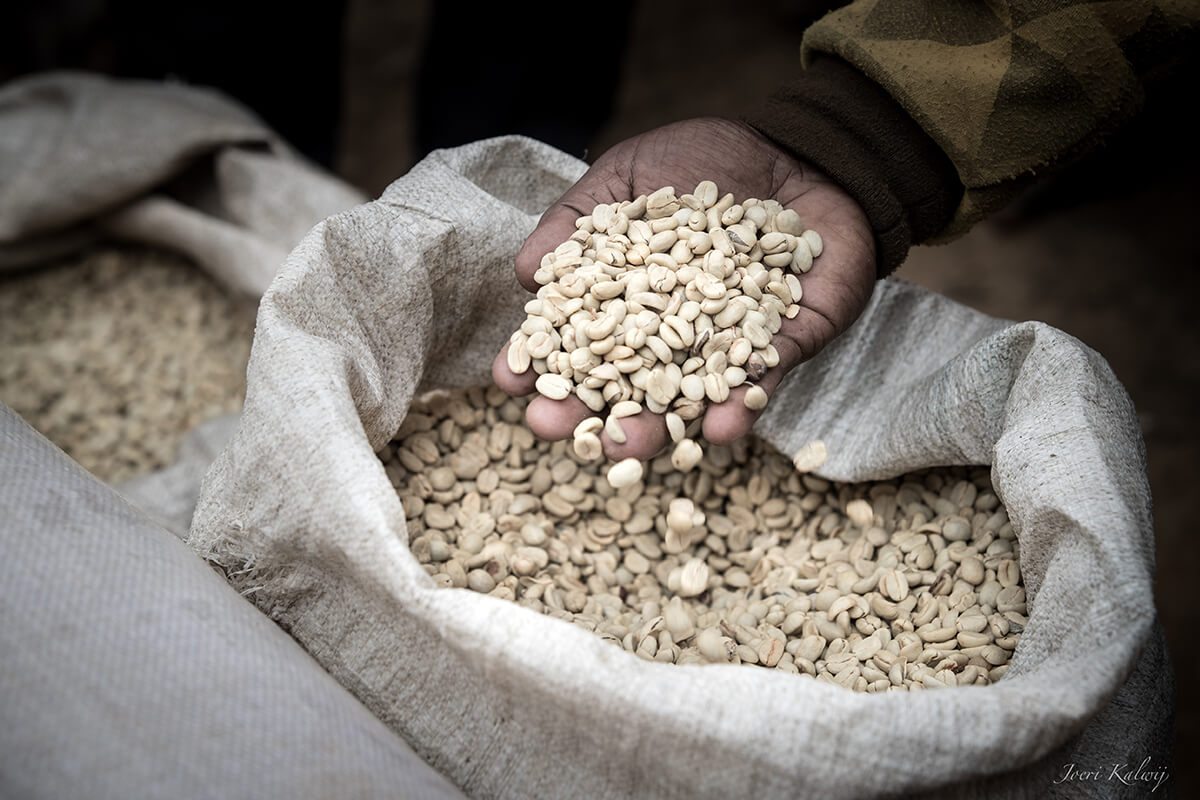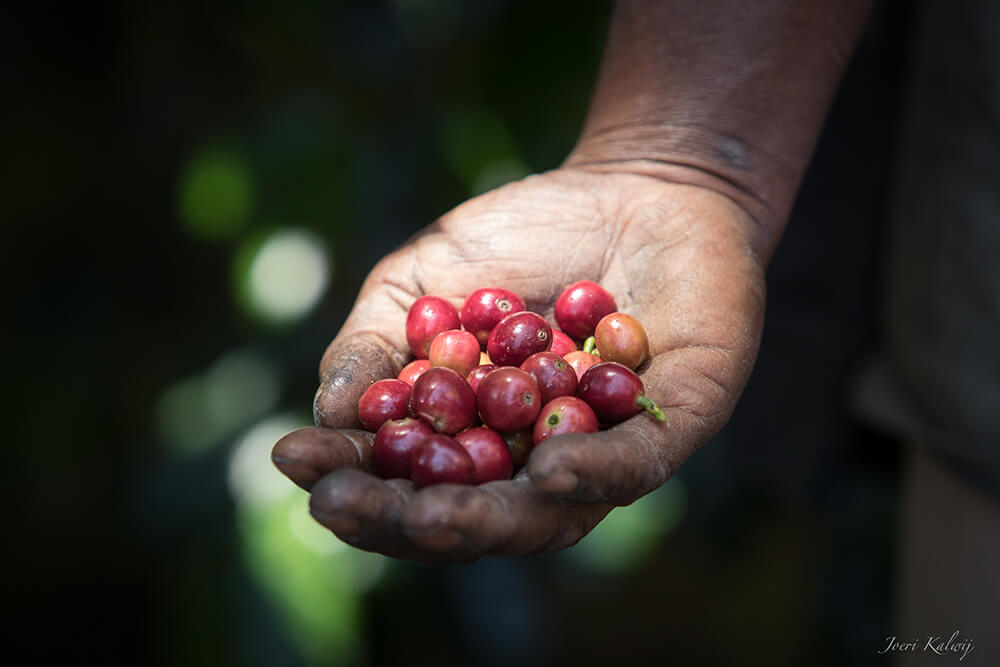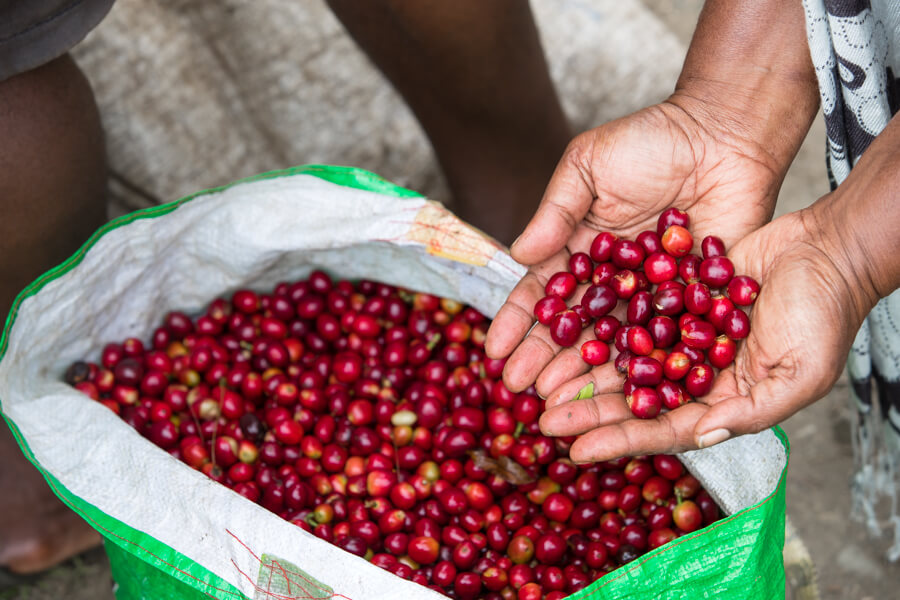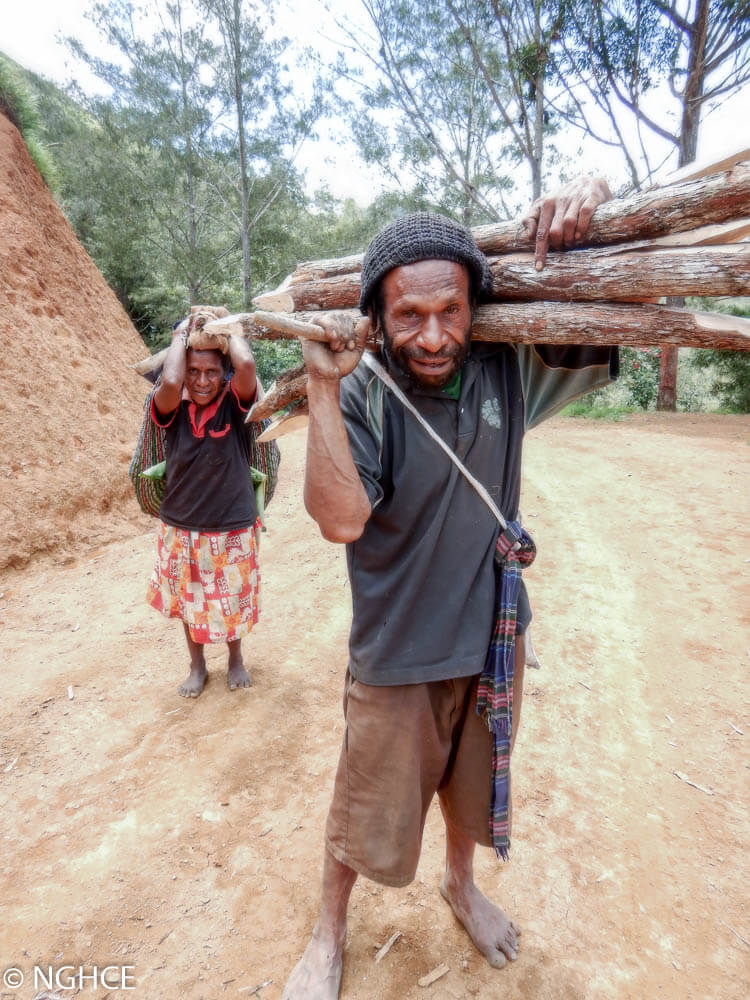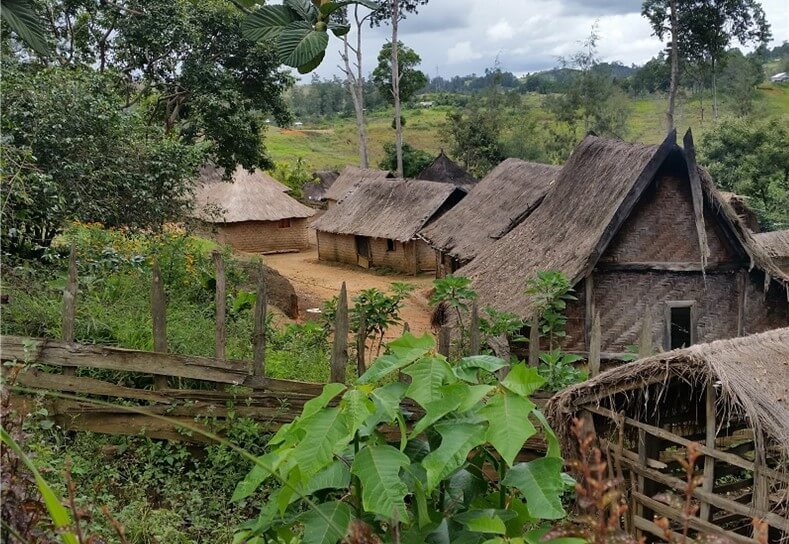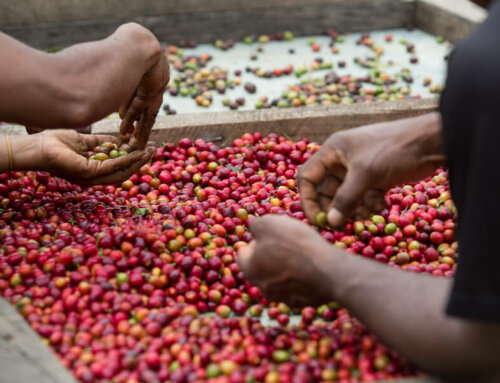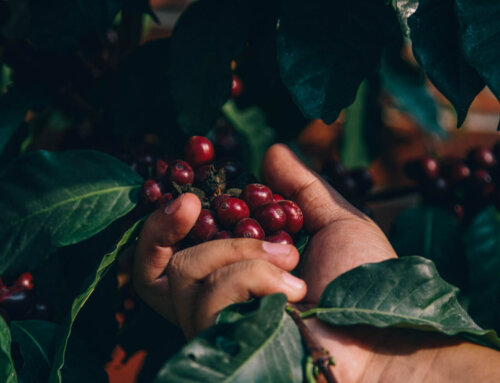Papua New Guinea
Konkua Organic
Community
Region : Eastern Highlands
Altitude : 1,400–1,800 masl
Process : Washed
Variety : Mixed
Certification : Organic
Grade : A
Q Score : 84.5
Soft acidity, excellent balance and structure. Orange, brown sugar & caramel.
Dominant Flavour

Secondary Flavour

ABOUT
The Konkua Organic Certified smallholder group is made up of coffee growing communities from two districts of the Eastern High-lands Province; Konkua Okipa in Kainantu District and Arau in Obura Wonenara. Originally the Organic Certified smallholder group was formed by Konkua Okipa Farmers. In course of the group’s expansion due to its success, the neighbouring Arau village has joined this program.
The closest urban hub is the township of Kainantu. Pre-PNG independence Kainantu was a busy coffee centre for many plantation operators and coffee entrepreneurs. The area marks one of the earliest commercial coffee plantings in PNG. In its hay days Kainantu had its own airstrip and golf club. Today it is still a major coffee trade post for a large number of communities and entrepreneurs active in the coffee industry.
With high quality and consistent deliveries the group was taken on board the Organic Certification program as a Plantation Quality supplier of Certified Organic. The Konkua network of small holder suppliers can be reached via road with a ca 2 hour drive from Goroka. The neighbouring Arau farmers community is further inland and requires some additional travelling time and is a challenging 4×4 off-road excursion.
The group currently represents 137 farmers with 313 ha of planted coffee and has been supplying coffee to NGHCE since 2013. This Konkua has won PNG’s national cupping competition in 2015.
PROCESSING:
Varieties of Typica, Arusha and Mundu Novo is shade-grown on the mountainous terrains and rich volcanic soil of this region. Ripe cherries are handpicked and pulped on site the same day using small hand pulpers before the wet parchment is fermented. Fermentation time averages from 36-48 hours and is usually done is small vats and bags. Fresh clean water from various creeks is sourced to complete the fully-washed process of this exceptional coffee. Drying may take up to a week depending on weather conditions. Although some parchment is still being sun dried on tarps, the implementation of raised drying beds is widely spread throughout the supply chain and we aim for 100% raised drying beds in the very near future.
Most coffee growers in this network are smallholder subsistence farmers. Coffee is the main cash generating activity for most and tends to be grown inter-cropped with other garden produce such as Banana, Pandanus, a variety of edible greens and vegetables. Competing with coffee as cash generating activity would be the small scale commercial production of vegetables or fruits to sell at lo-cal markets. Food gardens for a household’s own needs remain a priority focus of a subsistence farm of course. Small surplus volumes will be sold on local market.
After successful training and awareness sessions with our Farmer Support Unit, the first well-ventilated solar dryers have been commissioned for even better drying prac-tices. Dry parchment is stored in bush ma-terial huts until sufficient volume is collect-ed to transport (and sell) the parchment to the network’s central collection depot near the Highway.

